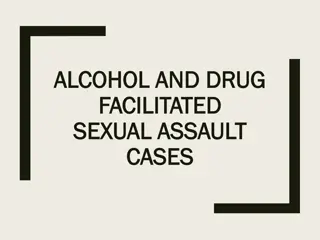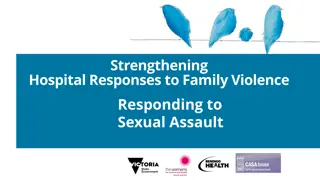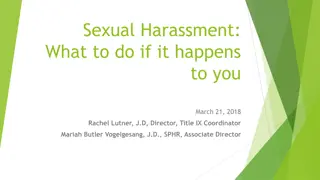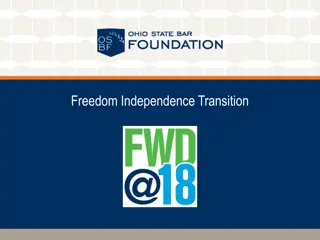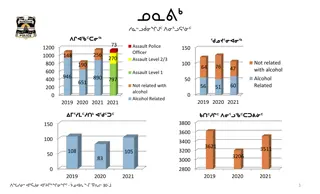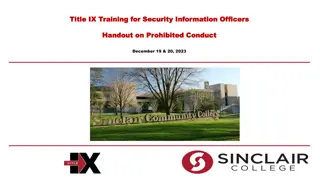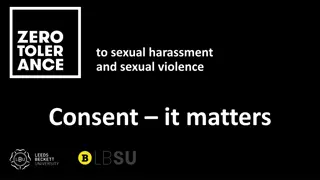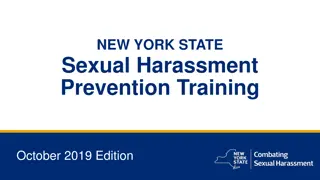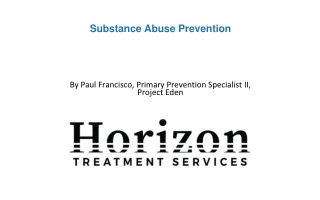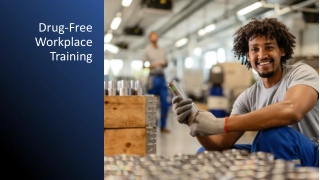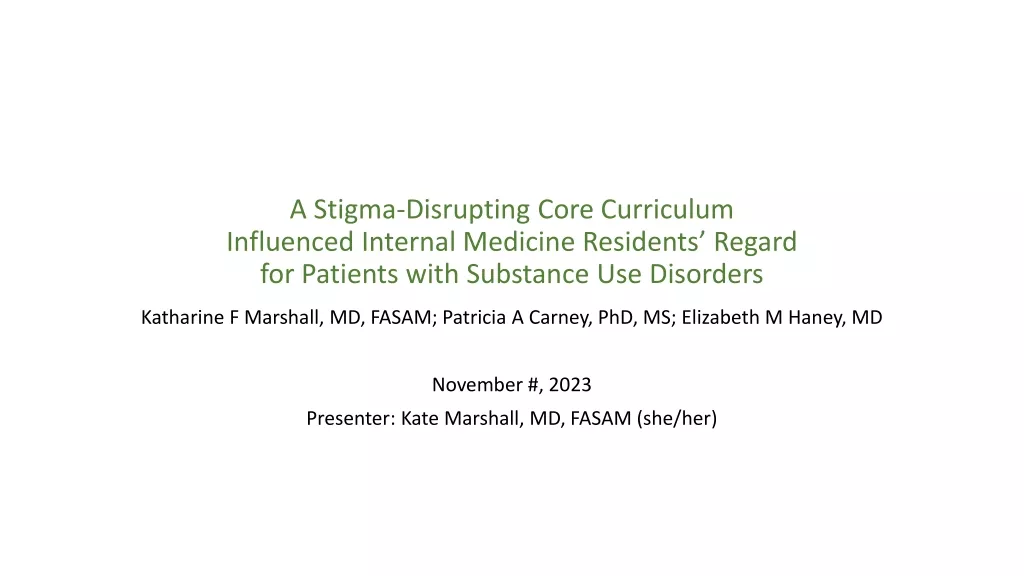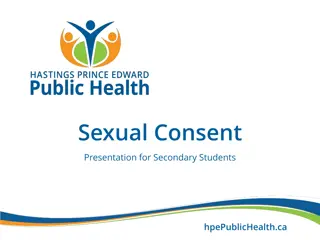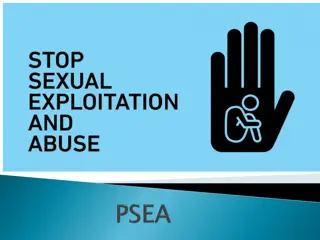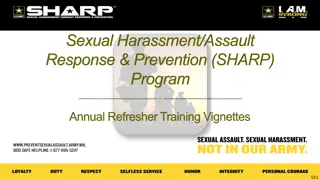Understanding Substance-Facilitated Sexual Assault (SFSA)
Substance-Facilitated Sexual Assault (SFSA) involves the use of drugs or alcohol to compromise an individual's ability to consent to sexual activity. Perpetrators often use substances to minimize resistance and memory of the victim. Alcohol is the most common substance used in SFSA, with 30%-79% of sexual assaults involving its consumption. It is important to understand consent and the legal implications of SFSA, with South Carolina laws outlining severe penalties for perpetrators. Awareness and education are crucial in combating SFSA.
Download Presentation

Please find below an Image/Link to download the presentation.
The content on the website is provided AS IS for your information and personal use only. It may not be sold, licensed, or shared on other websites without obtaining consent from the author. Download presentation by click this link. If you encounter any issues during the download, it is possible that the publisher has removed the file from their server.
E N D
Presentation Transcript
Substance Facilitated Sexual Assault (SFSA) What is SFSA?
From the Rape, Abuse & Incest National Network (RAINN) SFSA is: o When drugs or alcohol are used to compromise an individual s ability to consent to sexual activity. In addition, drugs and alcohol are often used in order to minimize the resistance and memory of the victim of sexual assault.
Substances May Include Alcohol GHB (Liquid X) Benzodiazepines (such as Xanax) Ketamine (Special K) MDMA (Ecstasy or Molly) Zolpidem (Ambien)
Quiz: WHAT IS THE MOST COMMON SUBSTANCE USED BY PERPETRATORS FOR SFSA?
Answer ALCOHOL It is estimated that 30%-79% of all sexual assault involves consumption of alcohol.
Did You Know That In 1 in 3 sexual assaults, the perpetrator was intoxicated 30% by alcohol, 4% by other drugs. 75% of the men and 55% of the women involved in acquaintance rapes were drinking or taking drugs before the attack. Approximately 4 out of 5 rapes were committed by someone known to the victim. *RAINN (Rape, Abuse & Incest National Network)
South Carolina Laws on SFSA Consent cannot legally be given by someone who is incapacitated, mentally defective, or physically helpless.
South Carolina Laws on SFSA A person can receive up to 30 years in prison for sexually assaulting the victim after giving him or her a controlled or intoxicating substance, such as alcohol or a date rape drug.
South Carolina Laws on SFSA A person may receive a sentence of up to 10 years in prison for sexually assaulting a victim despite knowing that the victim is mentally defective, incapacitated, or physically helpless.
Understanding Consent Consent is a clear, conscious, willing, and affirmative agreement to engage in sexual activity. A person who is incapacitated for any reason is not capable of giving consent. Prior consent does not guarantee future consent. The style of a person s clothing does not express consent.
Understanding Consent Silence or the absence of a no does not mean there is consent. An unconscious person cannot consent. Consent for one sexual act does not imply consent for other sexual acts. Consent can be withdrawn at any time. Consent is not coerced.
Sexual Assault Is NOT a Consequence of Drinking
The 5 Steps of Bystander Intervention 1) Notice the situation. 2) Recognize if the situation requires intervention. 3) Assume personal responsibility for intervening. 4) Decide the most effective way to help. 5) Intervene.
Tips for Bar Owners/Bartenders Check on people who seem uncomfortable. Have a list of trusted taxi drivers to offer to patrons if needed. Pay attention if someone becomes extremely intoxicated (especially if only after 1 or 2 drinks).
Tips for Bar Owners/Bartenders Offer water. Ask if they have a friend or designated driver. Don t leave them alone.
Tips for Bar Owners/Bartenders There are options if you feel uncomfortable confronting the perpetrator or involved parties. Call the police. Inform managers, co-workers, owners come up with a plan. Inform drink owner. Dump drink. Hold drugged drinks behind counter. Document. USE YOUR BEST JUDGMENT!
What Are the Benefits of Intervention? Keeping patrons safe Good reputation for establishment It s the right thing to do.


